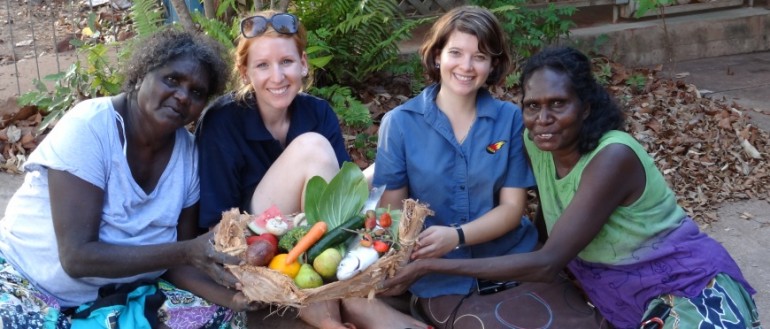Menzies research shines on the national stage
The Menzies School of Health Research (Menzies) has been awarded federal funding for 11 competitive grants and fellowships to help improve outcomes for disadvantaged populations in Australia and the Asia-Pacific region.
Menzies outperformed the nation’s top 20 universities and top 10 medical research institutes in terms of the success rate of its grant applications submitted to Australia’s peak body for supporting health and medical research, the National Health and Medical Research Council (NHMRC).
Thirty-eight per cent of Menzies’ grant applications were selected for funding through a highly competitive national process by NHMRC; double the Australian average success rate of 19 per cent.
Menzies director, Professor Alan Cass, said the result highlighted the quality of the research ideas and the strong history of engagement of the research staff at Menzies.
“This is a vital sign of support for research to improve the health of Indigenous Australians and for research on tropical health, both in Australia and overseas,” he said.
Prof Cass said he commended the Australian Government’s commitment to research, particularly in the area of Indigenous health.
“There is no quick fix in Indigenous health, but slowly, surely, we are gaining ground. Our work is having a meaningful and measureable impact and improving the lives of Indigenous people across Australia,” he said.
“The projects funded range from developing innovative public health approaches to gambling and smoking, to research into the social determinants of Indigenous health, through to using genomic techniques to better understand and treat golden staph.”
NHMRC announced more than $9 million funding for Menzies, including five Project Grants and six Fellowships.
Prof Cass said the funding ensures Menzies will continue as an institute of scientific excellence and as one of Australia’s leading medical research institutes.“This research will work to break the cycle of disadvantage and to develop innovative approaches to improving health and wellbeing,” Prof Cass said.
The project grants awarded to Menzies include:
$2,173,619 - Indigenous Healthy EARs: BEtadine, Tissues and Antibiotics (I HEAR BETA)
Chief Investigator – Associate Professor Peter Morris
$1,240,619 - Optimum thiamine dose for treatment and prevention of Wernicke-Korsakoff syndrome
Chief Investigator – Dr Kylie Dingwall
$1,116,904 - Genetic susceptibility to vulvar cancer
Chief Investigator – Associate Professor John Condon
$978,041 - How likely are suggested reasons for false diagnosis of sexually transmitted infections in young children?
Chief Investigator – Associate Professor Phil Giffard
$1,065,763 - A novel Hepatitis B virus genotype in Indigenous Australians: impact on vaccine efficacy and clinical outcomes
Chief Investigator – Dr Steve Tong
Prof Cass said the awarding of NHMRC fellowships will allow senior researchers to continue a career in science and help retain highly skilled staff in the Top End.
The fellowships awarded to Menzies include:
- Kim Hare - Effects of antibiotics, vaccines and environment on the population biology of bacterial respiratory pathogens in Australian Indigenous children – a synthesis of studies (Early Career Fellowship)
- Dr Matt Stevens - Public health approaches to gambling and smoking in the Aboriginal and Torres Strait Islander population (Early Career Fellowship)
- Dr Steve Tong - Clinical and genomic aspects of Staphylococcus aureus and other infectious diseases in Northern Australia (Career Development Fellowship)
- Professor Joan Cunningham - Social and system determinants of Indigenous health: closing the gap in outcomes for Indigenous Australians with cancer (Senior Research Fellowship)
- Professor Anne Chang - Improving children's respiratory health through better evidence and knowledge (Practitioner Fellowship)

